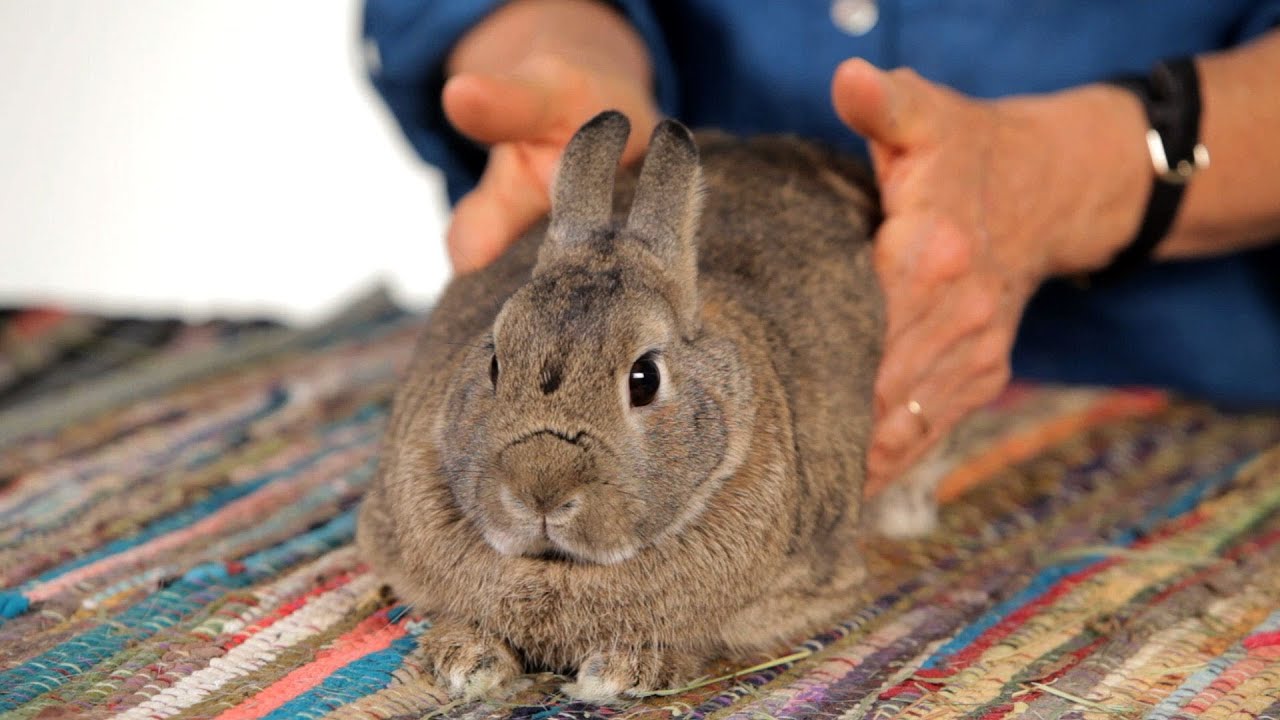Common symptoms of rabbit gas are: Press your stomach against the floor. Lethargy. The stomach is hard to touch. I can't defecate. Anorexia. Persistent posture. Bruxism. If your rabbit is sitting down, antisocial, and brushing his teeth loudly, this is a sign of pain and may be due to gas. Other rabbits show stomach discomfort by repeatedly switching positions while lying on the floor and do not seem to be comfortable. Get ready for a good "test". Signs of pain can be subtle, such as increased breathing, reluctance to move, sudden aggression, squinting, loss of interest in the surroundings, and inability to rest or sleep normally. If you have abdominal pain, the rabbit may sit in a sitting position. You can also massage the rabbit's stomach to encourage the gas to pass through the digestive tract a little faster. Gently place your hand under the rabbit's belly and move it up, down, left and right to gently apply pressure. However, push your finger up to the rabbit's belly without force.
If the rabbit is sitting down, antisocial, and brushing his teeth loudly, this is a sign of pain and is caused by gas. Other rabbits show stomach discomfort by repeatedly switching positions while lying on the floor and do not seem to feel comfortable.
What are the common symptoms of rabbit gas?
Common symptoms of rabbit gas are: 1 Large and rugged stomach 2 Pushing the stomach against the floor 3 Apathy 4 Difficult to touch the stomach 5 Inability to defecate 6 Loss of appetite 7 Bruxism 8 Bruxism 9 Flatulence 10 Body temperature below 100 degrees Fahrenheit
Rabbit feels pain How do I know if I have one?
Know what to look for. If your rabbit is sitting down, antisocial, and brushing his teeth loudly, this is a sign of pain and may be due to gas. Other rabbits show stomach discomfort by repeatedly switching positions while lying on the floor and do not seem to be comfortable.
How can I stop the rabbit from becoming gasy?
You can get a rabbit with a lot of gas. One of the common ways we deal with this is to give the rabbit what is called pediatric simethicone. This is actually a baby gas drop. There are various brands, and the baby gas drop comes in a small shaker bottle, which you can put in the rabbit's mouth with a little drop of the syringe.
Is it normal for a lot of rabbits to flatulence?
Rabbits sometimes pass gas as flatulence. This is a natural part of the digestive process, but if the rabbit has a certain amount of gas, there may be something wrong with the pet. Inappropriate diet is the most likely reason for flatulence in rabbits.
What are the symptoms of gas in rabbits?
Symptoms: When a rabbit is suffering from gas, it is appropriate to treat the rabbit as soon as possible. The most common symptoms are: -A rumbling sound heard from the rabbit's stomach. -Bunny is often lethargic, preferring to be alone, as she often sits with her eyes partially closed.
What can you give to a gas bunny?
Simethicone: Helps break down bubbles associated with bloating. Infusion therapy: Most of these rabbits are dehydrated and need water to make them feel better, rebalance their electrolytes, and return water to the intestines for normal contraction.
Do rabbits pass through gas?
Do rabbits farewell? .. Rabbits can not only be flatulent, but they need to be flatulent. Stress, dehydration, and a diet low in fiber but high in carbohydrates and sugar can cause gas to build up in the intestines. This is known as intestinal congestion.
How do I know if it's a rabbit? Is it bloated?
If the symptoms persist, there may be signs of abdominal pain such as sitting down, bruxism, and difficulty moving. Rabbits also become weaker and often end up lying in a stretched position.

Below you will find two helpful answers on a similar topic. 👇
What is the advantage of using Python over other languages?What should I not feed my rabbit?
